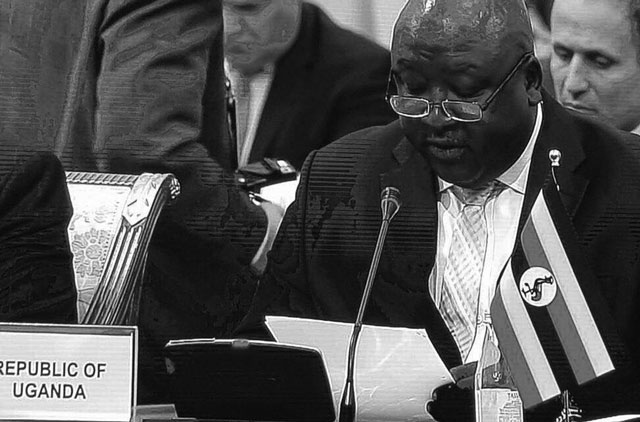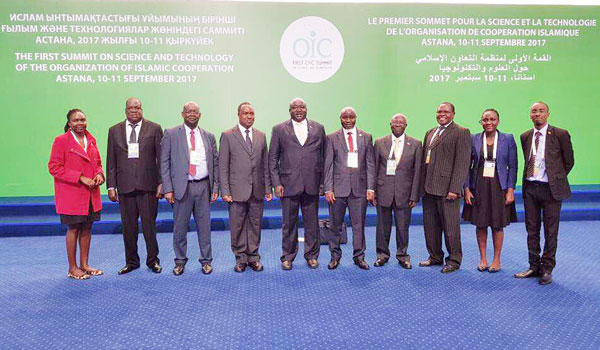
Astana, Kazakhstan | MOFA | Minister of State for Foreign Affairs in charge of International Affairs, Henry Oryem Okello has called upon the Organization of Islamic Cooperation (OIC) to increase funding in science, technology research and development in Institutions funded by OIC, including Islamic University in Uganda.
Okello made the remarks during the inaugural and first working session during which heads of high-level foreign delegations and international organizations delivered their statements. He is leading a 9-person Ugandan delegation at the 1st OIC on Science and Technology Summit held September 9-11 2017 in Astana, Kazakhstan.
The Astana Summit has been described by various quarters as a historic event for the entire Islamic world and, which will help to establish a framework to hold Science and Technology Summits on the regular basis.
The Astana Summit is meant to ensure a clear understanding of the necessity to completely reduce scientific and technological gaps between Muslim Ummah and developed countries and it will also contribute to the earliest implementation of the UN Sustainable Development Goals (SDGs) and promote the principles of cooperation and solidarity among all OIC Member States.

It is envisioned that it will mark beginning of a new process aimed at rethinking the historical role of the Muslim Ummah in the area of scientific and technology modernization of the world community and, as a practical step.
The outcome of the Summit is expected to be the adoption of an OIC Science, Technology and Innovation Agenda 2026 and the Astana Declaration.
Uganda’s challenges outlined
Okello who was accompanied by EliodaTumwesigye, Minister of Science and Technology and officials from the Ministries of Science, Technology and Innovation and Foreign Affairs expressed concern to the Summit that there was a need to reduce scientific and technological gaps in the members states.
He informed the Summit that Uganda’s challenge, which was not much different from others in the developing world, was in the current education system, which emphasizes theoretical academic work with little depth on applied science, engineering and technical skills which are central to technological innovations.
He emphasized that the Government of Uganda had given high priority support to the Science, Technology and Innovation sector in its overall development strategy by establishing the Uganda National Council for Science and Technology (UNCST) as the overall sector coordination agency. He said that the UNCST has developed and reviewed that National Science, Technology and Innovation Policy which the Government formally adopted. To implement this policy the Government later created a fully-fledged Ministry of Science and Technology.
The Summit final day was devoted solely to searching new methods and tools to develop science and cross-sector international cooperation, in order to strengthen the technological capacity of the OIC Member States.
The Astana Declaration is a political document, the adoption of which will be a clear sign of determination of the OIC Member States to support science and technology as a priority, including in the framework of the OIC 2025: Programme of Action and the Outcome Document of the Astana Summit. The Declaration will reflect the importance of developing and implementing initiatives and programs, as well as inferential research in the field of education, professional skills, basic and applied sciences, primarily aimed at resolving urgent social problems.
 The Independent Uganda: You get the Truth we Pay the Price
The Independent Uganda: You get the Truth we Pay the Price



